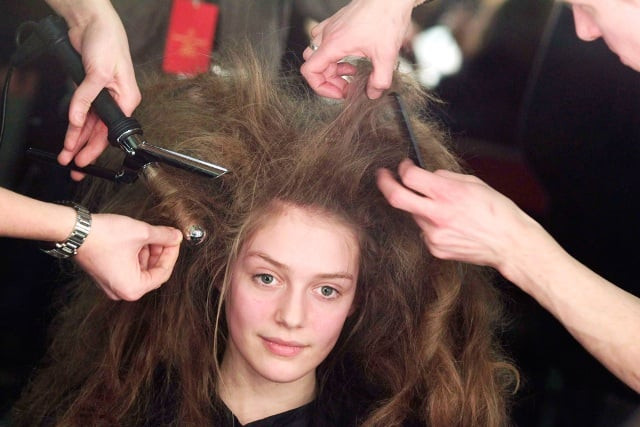7 sneaky reasons your hair is going grey too soon
Here’s a list of things that will help you discover why this annoying issue occurs in the first place

PHOTO: REUTERS
Your mum or dad greyed early
Steel-coloured locks are partly in your genes, says Doris Day, MD, clinical associate professor of dermatology at the New York University Langone Medical Centre and author of Forget the Facelift. A new study published in Nature Communications isolated one gene variant linked to greying after researchers analysed hair features of 6,000 people. Though you might be surprised about just how much grey you have if you’ve been colouring your hair for years (or decades), shares Day. And you can blame mum and dad. Just like whether you go bald or not, greying genes come from both sides of the family, reveals Day.
You may have an autoimmune condition
Did you know that the autoimmune skin disease called alopecia areata can lead to bright white strands? As the National Alopecia Areata Foundation (NAAF) explains, people with the condition develop small, round, smooth patches on the scalp, and they can completely lose hair on their head or body. “This happens because your immune system attacks your hair follicles, making your hair fall out. When it grows back, it grows back white,” explains Day. Millions of people, globally, have or will develop the condition, according to the NAAF. If you notice worrisome hair loss or a bald patch, talk to your dermatologist immediately.
Your environment is polluted
Pollutants and toxins can cause you to grey faster, according to the Library of Congress. These chemicals generate free radicals or oxidative stress that, in fact, damage melanin production and speed hair aging, studies suggest. But once hair grows out of the follicle, it’s dead, adds Day. “It’s really about what gets to the follicle level that will make the most marked difference. While these environmental issues may have an impact, other reasons, like stress, matter more,” she adds.
You’re super stressed
Bizarre fact: when President Obama entered office, his hair was dark. Five years later, people were concerned — because he completely transformed to silver. The stress-going grey link is hotly debated. However, says Day, “stress will accelerate your genetic destiny.” Meaning, if you’re not going to go grey any time soon, stress is unlikely to change your hair colour. But if going grey is in your genes, stress can make your hair turn grey faster and earlier — unless you make an effort to manage stress.
You’re exposed to cigarette smoke
Whether it’s you or someone else in your house doing all the puffing, exposure to cigarette smoke can affect your hair colour. Research published in 2013 found that smokers have 2.5 times greater odds of early greying, likely because of the huge amounts of free radicals generated by lighting up. Count this as one more reason to quit — or at least encourage a loved one to break the terrible habit.
Your hormones are changing
One glance at a photo of you a decade ago can tell you this, but your hair is not the same now as it was then. Thanks to hormones, your hair can change over time in texture, density, and, yes, colour. “This process starts to be most noticeable when you turn 30. “That’s the age when people start to come in and complain about these issues,” says Day. Experts are still trying to understand precisely how hormones (like oestrogen, progesterone, and cortisol) influence greying, she says. And undoubtedly, there are women in their 50s going through menopause who have not a strand of grey hair. It may be a trifecta of events coming to a head: your genetics, environmental factors and hormonal changes.
It’s your age
You may not be ready for the grey, but your hair might be. Keep calm, it’s not all that bad. Melanin production, or basically what gives hair its pigment, decreases with age. For every decade after you turn 30, your risk of going grey increases 10% to 20%, according to the Library of Congress. So while some people may be able to maintain their natural hair colour for longer, it’s inevitable. “In time, everyone’s hair goes grey,” according to the research conducted.
Published in The Express Tribune, April 14th, 2016.
Like Life & Style on Facebook, follow @ETLifeandStyle on Twitter for the latest in fashion, gossip and entertainment.



















COMMENTS
Comments are moderated and generally will be posted if they are on-topic and not abusive.
For more information, please see our Comments FAQ